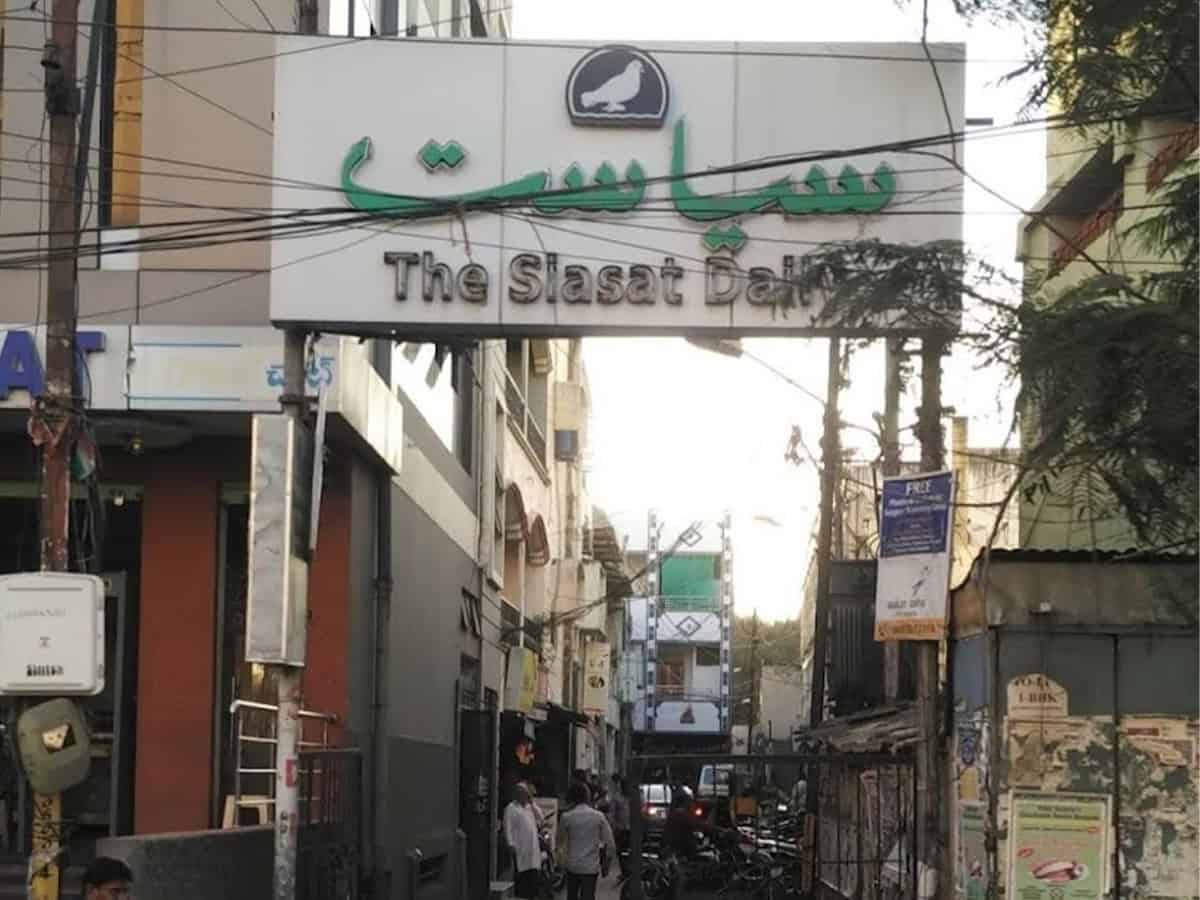
Hyderabad: The Platinum Jubilee of The Siasat Urdu Daily is a remarkable milestone, symbolizing 75 years of dedicated journalism and service to the community. In a nation’s history, 75 years might seem like a fleeting moment, but for a newspaper, it represents an enduring commitment to truth, integrity, and the public good. Since its founding, The Siasat has been a steadfast voice, reflecting the aspirations and challenges of society while staying true to its readers’ expectations.
Over the past seven and a half decades, The Siasat has consistently held a mirror to society, shedding light on issues that matter and providing a platform for voices that might otherwise go unheard. Its contributions to the preservation and promotion of the Urdu language, as well as its advocacy for social justice and equality, have earned it a special place in the hearts of its readers.
As The Siasat approaches its Platinum Jubilee, the celebration is particularly significant as it coincides with India’s Independence Day. This dual celebration highlights the newspaper’s integral role in the nation’s journey, reminding us of the power of the press in shaping a just and informed society. The Platinum Jubilee is not just a tribute to the past, but a commitment to the future, as The Siasat continues to uphold the values of fearless and principled journalism.
If you don’t read the newspaper, you are uninformed. And if you read it, you are misinformed. This quote attributed to renowned humorist, Mark Twain, may be true of some newspapers but not all. Certainly not in respect of The Siasat Daily. This Hyderabad newspaper has carved a niche for presentation of broad and balanced news coverage. And over the years it has won the attention and regard of readers on account of its reliable and unbiased reportage. Today its reputation has travelled across the southern State to the nation’s capital, Delhi, and even abroad.
And that says a lot for a language daily. In Hyderabad people don’t read Siasat – they step into it every morning like a hot bath. This Urdu daily has built a dedicated readership as it holds a mirror to society, more so to the Muslim community. It is not just a newspaper but one of the tent poles of the community. Siasat exerts such influence on the city that it could be another name for Hyderabad.
Some flip through it for classified ads, some look for alliances and many read Siasat for its bold and independent stance on issues. In its 75th year of existence, Siasat has become a window to the world. It not only informs but shapes and influences the views, opinions and attitudes of its readers.
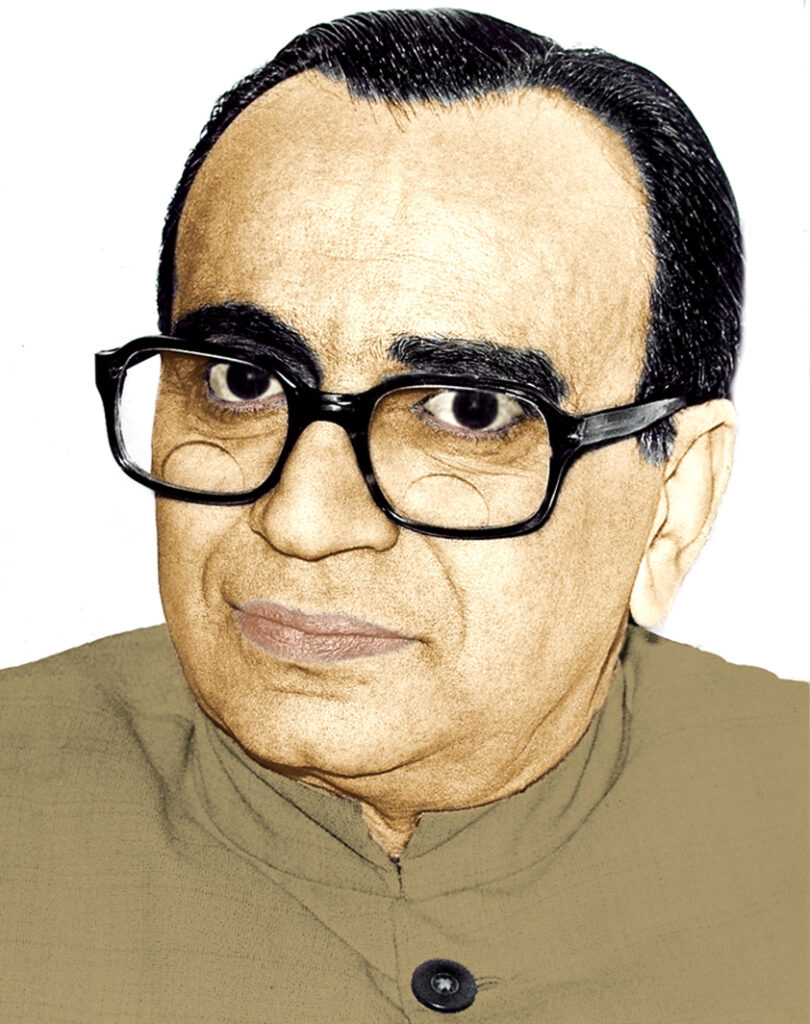
It was way back in 1949 – August 15 to be precise – that Siasat hit the stands with the avowed aim of working for the promotion of healthy democracy and mutual tolerance. In his first editorial, Abid Ali Khan, who founded Siasat along with his bosom friend, Mehboob Hussain Jigar, wrote:
“I have launched Siasat for a special purpose and cause. I am not in journalism for name and fame. Siasat will remain independent and not associate itself with any group, party or organisation as such an association will sound the death knell for any journal. Siasat will side with humanity and work for public welfare.”
To date, the newspaper has stuck to these noble principles weathering many a storm. What is unique about Siasat is that it is not just a newspaper in the strict sense of the word. During the last few decades, it has transformed itself into an institution, a movement. Whenever the community is affected by the wrong policies of the government, it takes up cudgels on its behalf and espouses every right cause. No wonder people turn to Siasat for different reasons–not just the news.
If you want your daughter to get hands-on computer training, Siasat is the place. Want career guidance or coaching for competitive exams, one invariably reaches out to Siasat. Finding life partners sans demands of jehez it is Siasat again one looks up to. For women, there is no place like Siasat to hone their culinary skills. In times of natural calamities and communal violence, this newspaper is always in the forefront in rendering succour and help to the victims. Be it the infamous Gujarat pogrom, the Bombay riots or the Assam floods, Siasat lost no time in raising funds for the victims.
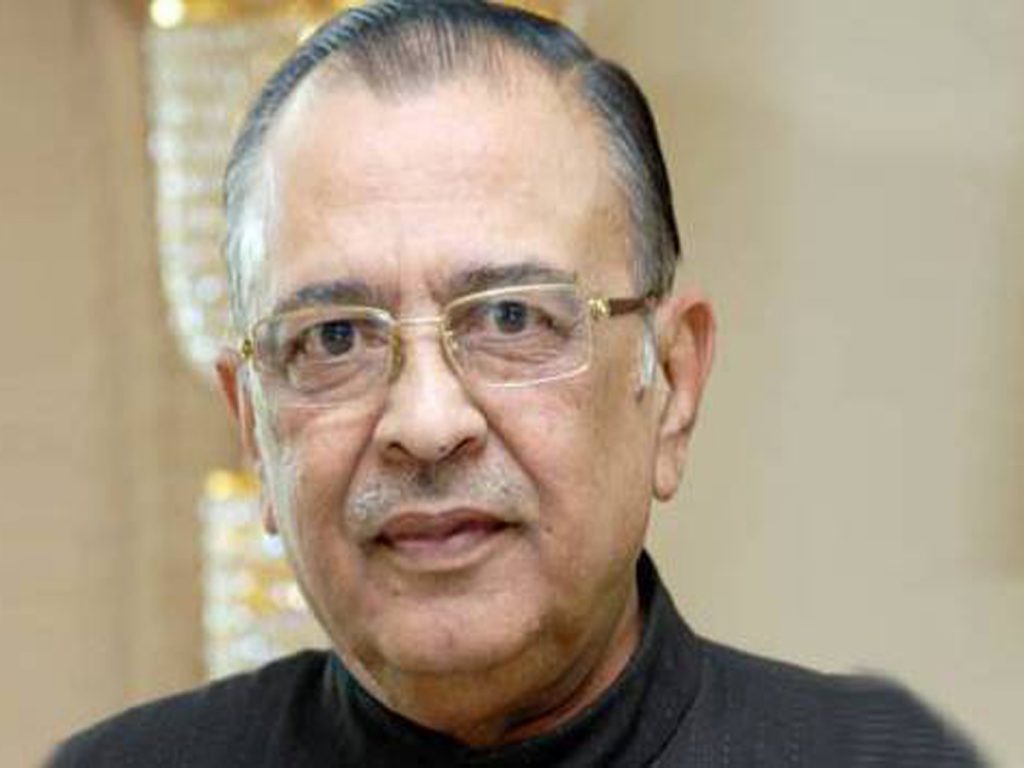
The educational and philanthropic initiatives of Siasat are unique. It plays an active role in shaping and funding the career of deserving boys and girls from the community. A shining example is that of Salwa Fatima of Hyderabad’s old city. If today she is flying high as a commercial pilot it is thanks to the present Siasat Editor-in-Chief, Zahid Ali Khan. At every stage of her career he stood by her side and lent her moral and financial support. He heaved a sigh of relief when she finally realised her dream of becoming a pilot.
Not just this. Siasat caters to the tastes and demands of all sections of its readers. Its spacious auditorium comes in handy for those looking for culturally rich evenings. For poets, writers and artists it is a haven. It not only patronises and promotes their talent but also provides space for them in its columns. The wide range of activities it undertakes is amazing. And what is interesting is that these are not exactly the duties of a newspaper. Not just in life, even in death Siasat is the last resort for some. It has set a record of sorts in burying unclaimed bodies at its own cost. Siasat impacts the day-to-day life of people in different ways. For Hyderabadis, it is the be-all and end-all of their life.
How the Siasat came into being is history by now. It is the close friendship between Abid Ali Khan and Mahboob Hussain Jigar that blossomed into a newspaper. Both classmates at Osmania University, they hit it off right from day one since they were on the same wavelength. They shared the same values, empathy and urge to do something for society. The proverbial one soul and two bodies’ thing.
As a Joint Editor, the role of Mahboob Hussain Jigar can’t be ignored in the success of Siasat. He was so dedicated to the newspaper that he remained a bachelor all through his life. He is believed to have left Hyderabad only on three occasions for short periods as he was worried about the newspaper. A strict disciplinarian, he ensured that everything was done on time. He closely monitored every aspect of the newspaper production and pulled up concerned persons for mistakes, if any. Till his death in March 1997, he continued to write editorials for Siasat. Along with Abid Ali Khan, he worked for the promotion of the Urdu language and for protection of the famed Ganga-Jamuni tehzeeb of Hyderabad.
Though a scion of the Jagirdar family, Abid Ali Khan and his brothers were given a good education. Unlike other nobles, his father, Nawab Mir Mehmood Ali Khan, could read the writing on the wall. He knew power and pelf and the Jagirdari pomp and glory wouldn’t last long. He realised the importance of education and sent all his children to the best of schools and colleges. Early in life Abid Ali Khan came into contact with the revolutionary poet, Makhdoom Mohiuddin. His stirring poetry made him understand the difference between prosperity and poverty. After graduation, he moved into the company of Makhdoom and other likeminded persons much to the concern of his father. Though not a member of the Communist Party he took an active interest in its ideology and translated into Urdu Karl Marx’s book – Wage Labour and Capital. He also became a member of the Progressive Writers’ Association and developed revolutionary ideas. It was the time when the Hyderabad state had merged into the Indian Union. Things were in disarray and the morale of Muslims was at its low. Abid Ali Khan decided to launch a newspaper. The die was cast. But starting a newspaper was easier said than done. He had to sell away his property and the gold jewellery of his wife to raise funds for the newspaper. Both he and Jigar quit their government jobs and plunged into the rough and tumble of journalism.
There were many Urdu newspapers published in Hyderabad in those days. But Payam edited by Qazi Abdul Ghaffar stood out for its progressive outlook and efforts to create a political awakening. Abid Ali Khan drew inspiration from it and carried the same spirit and ideas to his newspaper. Siasat made its appearance on the Hyderabad firmament on August 15, 1949, two years after India gained freedom and a year after Hyderabad acceded to India. But for a long period, it had to struggle to sell 800 copies. As days passed by it gained both circulation and trust of the readers. Today Siasat is a leading Urdu daily with a modest circulation of 50,000. Post COVID-19 its circulation took a hit like other newspapers. “We are now trying to regain the last ground,” says its News Editor, Amer Ali Khan, the third-generation family man steering the newspaper.
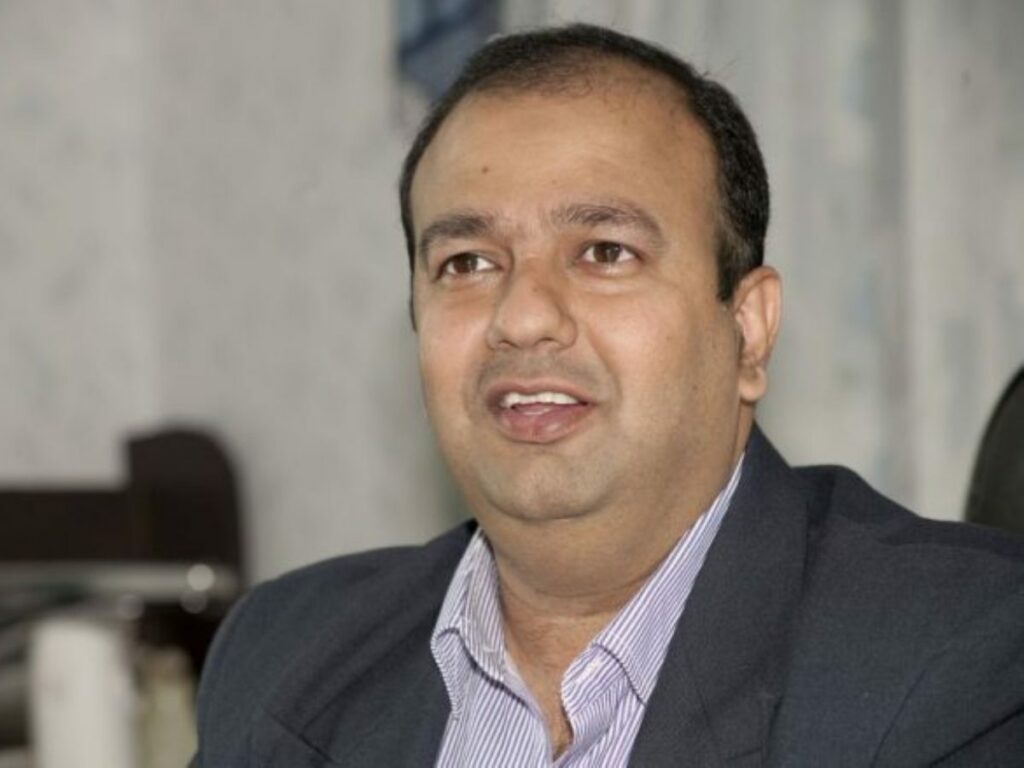
Siasat has given a break to many budding journalists and writers. Well-known satirist and humour writer, Mujtaba Hussain, started his career as a columnist here. He wrote scores of humour books and was conferred Padma Shri by the Government of India for his contribution to Urdu literature. He was the brother of Mahboob Hussain Jigar. Siasat has launched a dedicated website on Mujtaba Hussain, where all his books can be read.
Unlike other Urdu dailies, Siasat has not remained stuck in the rut. It is always first to embrace new technology to move ahead of its rivals. From the days of stone-based litho printing to offset printing, rotary printing and then colour printing it has travelled a long distance. Siasat became the first Urdu newspaper in India to launch an online edition in 2004. Subsequently, it came up with online editions in English and Hindi. It also launched Siasat TV and a news portal – Siasat.com. The latter was looked after till his death by Zaheeruddin Ali Khan, Siasat’s Managing Editor.
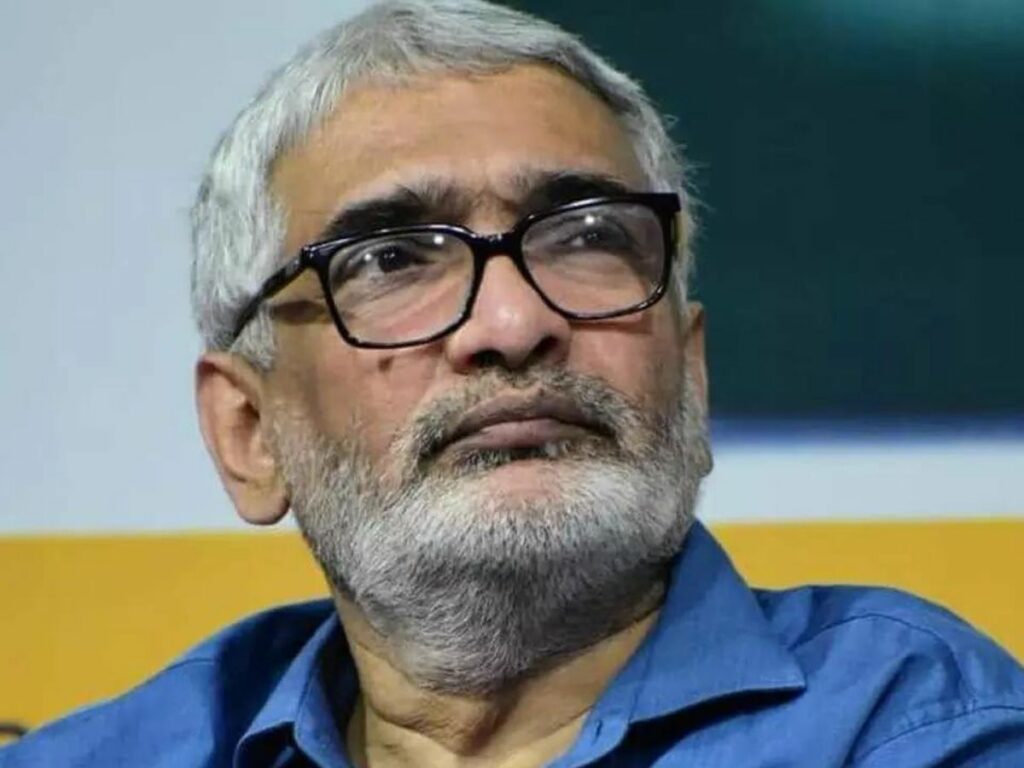
Despite his ill-health, Zahid Ali Khan is working hard to take forward the mission of Siasat’s visionary founders. He has taken the arduous task of promoting Urdu language and literature, providing the right guidance to youth, preserving culture and maintaining journalistic ethics and standards. “My pen will pass on as a legacy and every ahl-e-qalam will be its inheritor”, he remarked during the diamond jubilee celebrations of the newspaper.
In this digital era, the future may look bleak for print media. But for Hyderabadis, there is nothing like a hot cuppa and Siasat.



